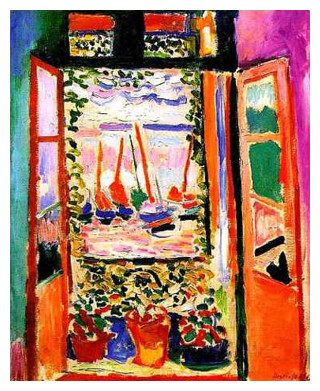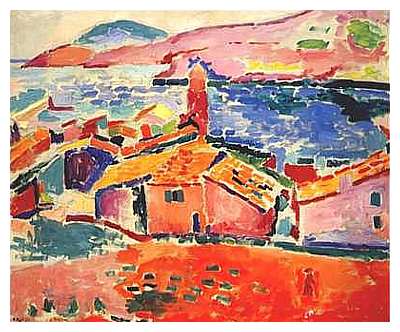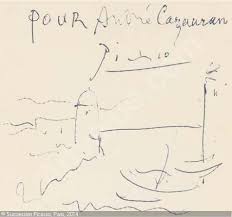Collioure, sometimes called the Jewel of the Cote Vermeille is a delightful small, sunny fishing village on the Languedoc- Roussillon coast in South West France. Collioure lies in a sheltered bay at the foot of the Pyrenees. Situated in the heart of Catalan country, the local culture, folklore, tradition and food of Collioure reflect its closeness to Spain and the fact it lies on the Mediterranean Sea.

Collioure has belonged to France since the Treaty of the Pyrenees in 1659. Before then it was part of the Kingdom of Majorca, the impressive Château was the King’s Summer Palace and dates back to the Romans. The Knights Templar built on Roman foundations before the present Château was begun in the late 13th Century.



The town is famous for the production of anchovies. The fishing port is not as busy as it was 100 years ago but you can still see some of the brightly coloured Catalan fishing boats amongst the more modern craft in the harbour and if you want to purchase freshly caught seafood you can do so from the quay in nearly Port Vendres.
Collioure offers something for everyone:
Beaches
There are four relatively small but safe beaches in the bays in the heart of the town and miles of sandy beaches nearby at Argeles Plage which is a short bus journey away.

Walking
Plenty of places to walk to suit all levels, including along the coast, in the nearby vineyards and in the nearby Pyrenean foothills and the Albres hills. Walking guidebooks are available to borrow.
Places to visit
The recently restored windmill just above the town where the local olives were pressed is a short trip, and the views from the Forts St Elme and Dugommier are well worth the walk. The medieval church on the edge of the sea is very pretty as is the Chateau Royal. The Castle of the Kings of Majorca in Perpignan as well as the historic centre is also well worth the visit and accessible by bus or train.
The information folder contains details of places worth a visit.
Wine
The hills surrounding Collioure are planted extensively with vines for the local appellations. Visit the vineyards on foot, take the signposted routes by car or bicycle or try the little tourist train which winds its way through the little roads over the hills to Port Vendres. The local chateaux and caves welcome visitors and offer tastings. Try the Banyuls and the sweet Muscat de Rivesaltes.
Art
Collioure has been a destination for artists throughout history, drawn by the lovely light and supportive locals. Picasso, Matisse, Charles Rennie Mackintosh and Derain all spent time here and were inspired by Collioure and the surrounding area. The guided tour of “les chemins du fauvisme” is interesting and Les Templiers bar and restaurant is a must visit for their art collection.
There is a museum of modern art in Collioure and in nearby Ceret the lovely museum of modern art has works by many artists including Picasso and features regular exhibitions. The Dali museum in Figueras, just over the border in Spain is also worth a visit.
Painters still drawn to Collioure can be seen especially around the port area, their paintings displayed on easels or hung on the old town walls. Visitors can while away the hours in the many galleries in the narrow streets of the old town.







Markets
Collioure has a market on Sunday and Wednesday, with an excellent selection of local foods as well as some tourist souveniers. There are also markets daily (except Monday) in Perpignan and there is a daily fish Market in Port Vendres where you can buy locally freshly caught fish and shellfish.
Food and restaurants
The town and nearby areas have a wide variety of restaurants to suit a range of tastes and prices. Local seafood features on many of the menus along with local Catalan specialities.
The information folder has details of local restaurants.
Interesting links for Collioure
A lovely Saturday Guardian piece about the wider area
Collioure: St Tropez without the ‘flim-flam, froth and laughable prices’- a recent recommendation from the Telegraph travel section
And from the Guardian travel pages
Collioure the cut price Cote d’Azur
Collioure on youtube
https://www.youtube.com/watch?v=cN_pP7SR-kg
https://www.youtube.com/watch?v=-oQeJiK0GtU
How to get to Collioure
Flights – the nearest airport is Perpignan (where you can get a bus from the airport into the centre for 1.30 euros or a taxi, then another bus (1 euro) or train (6 euros) to Collioure. I can also arrange for you to be picked up by car from Perpignan Airport for 50euros.
Other airports where you can then get a train to Collioure are as follows (check prices and times for most up to date):
Beziers (train 20 euros one way, approx 1 hour 30 minutes)
Barcelona (train 50 euros one way, approx 2 hours)
Girona (train 31 euros, approx 1 hour 15 minutes)
Carcasonne (train via Narbonne 20 euros one way, approx 50 minutes)
Trains – Collioure is on the line between Port Bou in Spain and Avignon. The nearest large train station is Perpignan (20 minutes). For details of trains in France go to Trainline EU
By car – all routes lead to Autoroute A9, La Catalane, to Perpignan where you should take Exit 42 Perpignan Sud and then follow the signs for N114 direction Elne, then Argeles sur Mer then Collioure.
